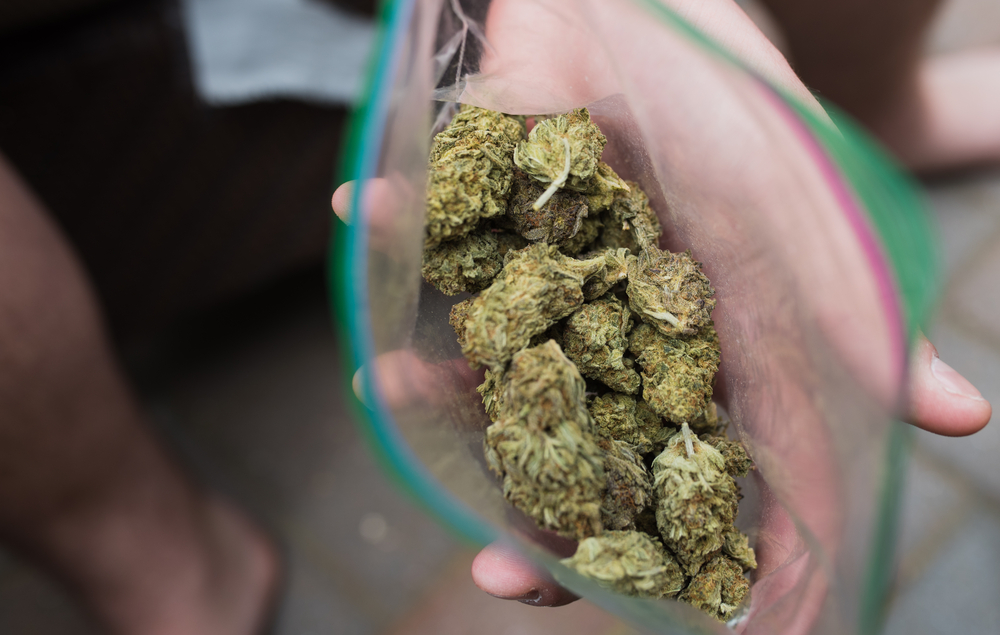Canada News
A taxing problem: how to price, tax legal weed to stamp out the black market

For the owner of Uncle Ike’s, one of the biggest marijuana shops in Seattle, the teenagers who come through his legal storefront to score weed are some of the clearest indicators the black market is on the wane. (Shutterstock)
TORONTO—For the owner of Uncle Ike’s, one of the biggest marijuana shops in Seattle, the teenagers who come through his legal storefront to score weed are some of the clearest indicators the black market is on the wane.
“Underage kids try to sneak into our store with fake IDs from the local high schools,” says owner Ian Eisenberg. “Because there is no pot being sold at the local high schools anymore.”
Stamping out the illicit market is one of Ottawa’s major goals as the country approaches a July 2018 deadline for the legalization of recreational marijuana — leaving politicians little time to lay out exactly how to sell, price and tax cannabis.
As Washington, which legalized recreational sales in 2014, has learned, pricing and taxation can heavily influence whether the black market blooms or shrivels.
The state originally levied a 25 per cent tax on producer sales to processors, another 25 per cent tax on processor sales to retailers, and a further 25 per cent tax on retailer sales to customers.
The high consumer costs, combined with a shortage of legal cannabis, fuelled the black market, according to analysts.
With that in mind, the government replaced that system with a combined 37 per cent excise tax on the marijuana sales price, but the question of whether this is helping to eliminate illicit sales is up in the air in the still-nascent sector.
U.S. states that have already legalized recreational pot sales — such as Washington, which has an estimated effective tax rate of 50 per cent, and Alaska, where the rate is closer to 20 per cent — are some of the few jurisdictions that can offer history lessons, albeit short and unfinished ones, on how to navigate such complex issues.
Canada’s proposal seems to have landed on a pricing middle ground.
Liberal MP Bill Blair, Ottawa’s point man on pot reform, pitched the government’s federal tax scheme last month. His proposal would impose an excise tax of the higher of $1 per gram or 10 per cent of the final retail price — on top of other levies, such as federal and provincial sales tax.
Ottawa’s proposed tax regime so far (not accounting for municipalities) works out to a 23 per cent total tax on cannabis in Ontario if incorporating the 13 per cent HST. However, it would be cheaper in provinces with just five per cent GST, such as Alberta. But the rate could be as high as 25 per cent in New Brunswick and other provinces with a 15 per cent GST rate.
Governments still have much to learn and there is little available evidence on which to base policies, says Beau Kilmer, the co-director of the RAND Drug Policy Research Center in California, where sales of recreational marijuana are set to begin on January 1.
“Nobody knows the best way to tax, and we’re going to learn more from other jurisdictions and we’re also learning more about the plant.”
The policy goals — including stamping out the black market, reducing underage consumption or drumming up tax revenue — are often at odds with each other.
The best way to drive out illicit sales is to flood the market with a tremendous amount of legal cannabis and little regulation in order to push the price down and lure consumers away from their current dealers, says Kilmer.
But there’s a catch: doing so could encourage consumption, particularly among younger users who are very price sensitive, he adds.
Canada’s federal task force on the legalization of recreational marijuana considered how to strike that balance before issuing its recommendations last December.
“Taxes should be high enough to limit the growth of consumption, but low enough to compete effectively with the illicit market,” members said in a report.
It is important to keep the tax rate low, if not very low, at the outset, says Sam Kamin, professor of marijuana law and policy at the University of Denver.
“What you’re trying to do is make the legal regulated product immediately attractive,” he says.
“There will probably be initial scarcity, so prices are going to be high, regardless. And if you drive that up with high taxes as well, which tacks on cost, you’re going to serve a triple whammy of unattractiveness.”
Legal cannabis that is more costly than that purchased from the neighbourhood dealer reinforces the price advantage of the black market, according to Fitch Ratings analysts Stephen Walsh and Karen Ribble.
“This dynamic has already been experienced in several states, including Colorado, Washington and Oregon, all of which have taken steps following legalization to address black market competition through reductions of initially uncompetitive tax rates,” the authors wrote in an October special report.
Those examples show how it is key to build in flexibility to raise or change marijuana policy in the future, Kilmer says.
In addition to the level of taxation, politicians must also consider how to apply the tax rate.
Blair’s proposal involves taxing cannabis based on weight, in contrast to the task force’s recommendation to base prices on potency in order to discourage the purchase of stronger drugs.
While it is easier to apply weight-based tax, doing so could nudge people towards stronger weed, says Kilmer. There is little research, at this point, about the health consequences of smoking higher-potency bud, he adds.
Ottawa’s plan to apply the excise tax to both medical and recreational marijuana equally has raised the ire of patient advocates and some licensed producers.
Blair said last month that Ottawa does “not want the taxation levels to be an incentive for people to utilize that system inappropriately.”
Canadians for Fair Access to Medical Marijuana has argued that weed should be tax-free like other medicines such as opioids. It has launched a #DontTaxMedicine campaign and website to push back on a tax it says punishes patients.
In Colorado, medical patients have been exempt from excise taxes from the outset and it doesn’t appear to have pushed more users into the system. Kamin says the state had 100,000 registered medical patients in 2014, and that number hasn’t changed.
People may game the system to obtain cheaper, medicinal weed Karmin says. However, his preferred solution is to keep the premium on recreational cannabis but make it harder for people to qualify for medical marijuana.
“Those who need marijuana as medicine shouldn’t pay the sin tax.”





















